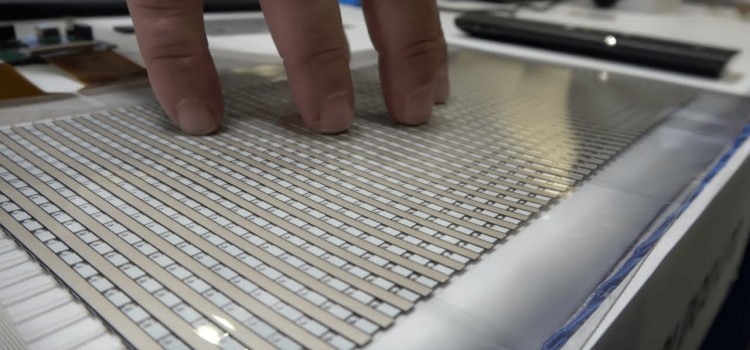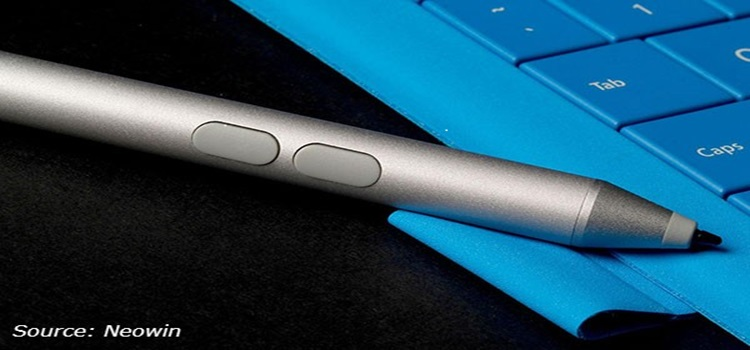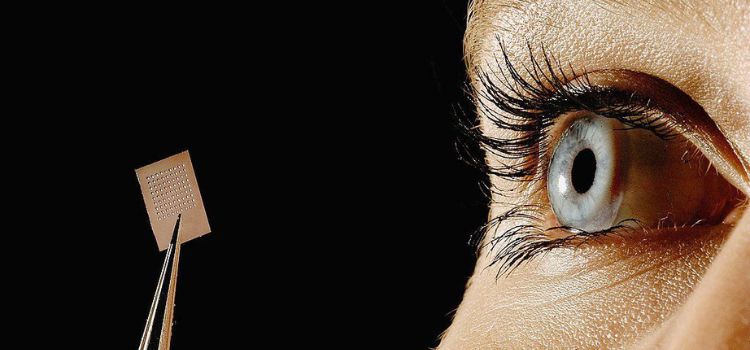
Sensor Fusion Market by Sensors Type (Accelerometer, Capacitive Sensor, Pressure Sensors, Temperature Sensors, Touch Sensors, Radar Sensors, and Image Sensors), and Technology (Micro-Electro-Mechanical System and Non-Micro-Electro-Mechanical System), by Application (Smartphones, Tablets, Cameras, TV Remotes, and Video Games), and by End-users (Retail, Consumer Electronics, Automotive, Medical, and Military)- Global Opportunity Analysis and Industry Forecast 2024-2030
Sensor Fusion Market Overview
The global Sensor Fusion Market was valued at USD 6.31 billion in 2023 and is predicted to reach USD 16.40 billion by 2030 with a CAGR of 17.3% from 2024-2030. The sensor fusion industry encompasses the integration of data from multiple types of sensors to improve the accuracy and functionality of systems across various applications.
This market includes technologies and solutions that combine data from sensors such as radar, LiDAR, cameras, accelerometers, and gyroscopes into a unified, comprehensive view. By integrating diverse sensor inputs, data fusion algorithms enhance system performance, provides more precise measurements, and enables advanced capabilities in fields such as automotive, consumer electronics, industrial automation, and various other industries. This integrated approach allows for more reliable and efficient operation of complex systems and devices.
Market Dynamics and Trends
The sensor fusion market growth is driven by the rising penetration of new-generation smartphones, tablets, and wearables drives the demand for advanced features and sensors that can process and combine data from multiple sensors in real-time.
According to a report from the GSMA, the global demand for smartphones is growing rapidly, with adoption expected to reach 7.5 billion by 2026. This surge in the number of smartphone users is poised to boost the growth of the market, as more devices will require advanced sensor integration to enhance user experiences and functionality.
Furthermore, the advancement in technology such as artificial intelligence (AI) and machine learning (ML) algorithms based on sensors is further driving growth in the sensor fusion market demand.
For instance, in December 2022, Intuitive Surgical Inc. launched new AI-based sensor modules the M4.5S and the M4.3WN. The sensor modules integrated depth sensing and image processing with AI and VSLAM capabilities in order to provide robotic devices with a human-like visual understanding for obstacle detection and object recognition.
However, the high cost of sensor fusion along with the risk of malfunctioning are the major factors restraining the sensor fusion market expansion. On the contrary, the introduction of self-learning sensors is expected to create ample opportunities in the coming years.
These innovative sensors, capable of adapting and improving their performance based on the data they collect, enhances accuracy, efficiency, and responsiveness, driving further innovation and growth in the market.
Market Segmentations and Scope of the Study
The sensor fusion market report is segmented on the basis of sensor type, technology, application, end-users, and region. On the basis of sensor type, the market is divided into accelerometers, capacitive sensors, pressure sensors, temperature sensors, touch sensors, radar sensors, and image sensors. On the basis of technology, the market is classified into the micro-electro-mechanical system and non-micro-electro-mechanical system. On the basis of application, the market is segmented into smartphones, tablets, cameras, tv remotes, and video games. On the basis of end-users, the market is divided into retail, consumer electronics, automotive, medical, and military. Regional breakdown and analysis of each of the aforesaid segments include regions comprising of North America, Europe, Asia-Pacific, and RoW.
Geographical Analysis
Asia-Pacific dominates the sensor fusion market share and is expected to continue its dominance during the forecast period. This is attributed to factors such as the increasing penetration of smartphones, tablets, laptops, and wearables in this region.
According to the Global System for Mobile Communications Association (GSMA), smartphone adoption in Asia-Pacific reached 76% in 2022 and is expected to grow to 94% by 2030. This significant rise in smartphone adoption, coupled with increasing internet penetration in the region, is poised to drive the growth of the market in this region.
Moreover, the growing autonomous vehicle manufacturing industry in the Asia-Pacific region, along with stringent government policies mandating advanced driver-assistance systems (ADAS), is further boosting the growth of the sensor fusion sector.
For instance, the Ministry of Road Transport and Highways of India announced plans to make autonomous emergency braking and electronic stability control (ESC) mandatory in Indian cars from 2022. These regulatory measures are expected to significantly drive market expansion in the region.
On the other hand, North America is expected to experience steady growth in the sensor fusion market trends, largely due to increasing government investments in the aerospace and defense sector.
According to a report by the U.S. Government, the Department of Defense received USD 2.09 trillion in budgetary resources, with USD 973 billion allocated for advancing the military sector and developing cutting-edge weapons, UAVs, and other tactical equipment. This significant rise in government funding is a key driver of market growth in the region, as it fosters the adoption of advanced sensor fusion technologies in defense applications.
Moreover, the presence of key market players such as VERSES, Maxim Integrated, and InvenSense Inc. and their continuous innovation and product launches plays a major role in the growth of the sensor fusion industry.
For instance, in September 2022, VERSES announced the launch of an artificial intelligence lab and sensor fusion research facility in California. Through this launch, the company aims to develop and launch solutions based on sensor fusion research techniques.
Competitive Landscape
Various market players operating in the sensor fusion industry include Analog Devices Inc., NXP Semiconductor, Renesas Electronics Corporation, Bosch Sensortec GmbH, InvenSense Inc., Infineon Technologies, STMicroelectronics, Asahi Kasei Microdevices, BASELABS, Maxim Integrated, and others. These companies are adopting various strategies such as product launches to remain dominant in the sector.
For instance, in January 2024, NXP Semiconductors launched the SAF86xx, an advanced one-chip radar with a high-performance radar transceiver, a multi-core radar processor, and a MACsec hardware engine for secure Automotive Ethernet communication.
The sensor enhances ADAS and autonomous driving capabilities with features such as 360-degree sensor fusion, AI-based object classification, and the ability to stream low-level radar data at up to 1 Gbit/s.
In November 2022, STMicroelectronics launched 6-axis IMU with embedded sensor integration technology and AI to enable low-power sensing applications such as AR/VR and wearables, ST's IMU serves up sensor fusion blocks and machine learning (ML) cores.
Key Benefits
-
The report provides quantitative analysis and estimations of the fusion sensor market from 2024 to 2030, which assists in identifying the prevailing industry opportunities.
-
The study comprises a deep-dive analysis of the current and future sensor fusion market trends to depict the prevalent investment pockets in the sector.
-
Information related to key drivers, restraints, and opportunities and their impact on the market is provided in the report.
-
Competitive analysis of the key players, along with their market share is provided in the report.
-
SWOT analysis and Porters Five Forces model is elaborated in the study.
-
Value chain analysis in the market study provides a clear picture of roles of stakeholders.
Sensor Fusion Market Key Segments
By Sensor Type
-
Accelerometer
-
Capacitive Sensor
-
Pressure Sensors
-
Temperature Sensors
-
Touch Sensors
-
Radar Sensors
-
Image Sensors
By Technology
-
Micro-Electro-Mechanical System
-
Non-Micro-Electro-Mechanical System
By Application
-
Smartphones
-
Tablets Cameras
-
TV Remotes
-
Video Games
By End-User
-
Retail
-
Consumer Electronics
-
Automotive
-
Medical
-
Military
By Region
-
North America
-
The U.S.
-
Canada
-
Mexico
-
-
Europe
-
The UK
-
Germany
-
France
-
Italy
-
Spain
-
Denmark
-
Netherlands
-
Finland
-
Sweden
-
Norway
-
Russia
-
Rest of Europe
-
-
Asia-Pacific
-
China
-
Japan
-
India
-
South Korea
-
Australia
-
Indonesia
-
Singapore
-
Taiwan
-
Thailand
-
Rest of Asia-Pacific
-
-
RoW
-
Latin America
-
Middle East
-
Africa
-
Key Players
-
Analog Devices Inc.
-
NXP Semiconductor
-
Renesas Electronics Corporation
-
Bosch Sensortec GmbH
-
InvenSense Inc.
-
Infineon Technologies
-
STMicroelectronics
-
Asahi Kasei Microdevices
-
BASELABS
-
Maxim Integrated
REPORT SCOPE AND SEGMENTATION:
|
Parameters |
Details |
|
Market Size in 2023 |
USD 6.31 Billion |
|
Revenue Forecast in 2030 |
USD 16.40 Billion |
|
Growth Rate |
CAGR of 17.3% from 2024 to 2030 |
|
Analysis Period |
2023–2030 |
|
Base Year Considered |
2023 |
|
Forecast Period |
2024–2030 |
|
Market Size Estimation |
Billion (USD) |
|
Growth Factors |
|
|
Countries Covered |
28 |
|
Companies Profiled |
10 |
|
Market Share |
Available for 10 companies |
|
Customization Scope |
Free customization (equivalent up to 80 working hours of analysts) after purchase. Addition or alteration to country, regional, and segment scope. |
|
Pricing and Purchase Options |
Avail customized purchase options to meet your exact research needs. |




 Speak to Our Analyst
Speak to Our Analyst


































